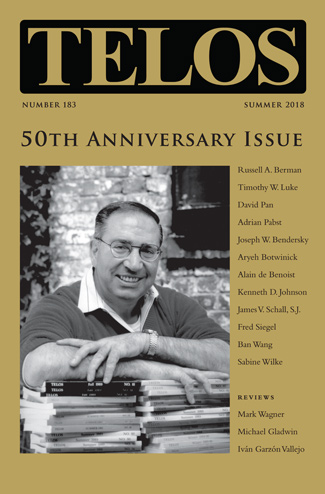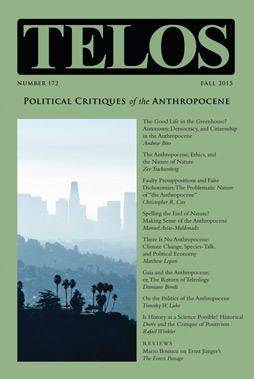Nietzsche once said that culture was only a thin apple peel over a glowing hot chaos. That is probably to say that even a small shock suffices to confront us anew with barbarism and dizzying stupidity. And now we are actually dealing with a worldwide pandemic. In effect, the thin apple peel tore at once and an abyss of the most dangerous folly has opened up. Thus one headline read in the weekly newspaper Die Zeit: “Mankind takes a break—the planet exhales.” One might simply accept as childish impudence calling the lockdown, the curfew that has practically brought the entire global society to a standstill, a “break.” But the madness lies in the presumptuousness of assuming a perspective above humans and of making oneself the voice of the “tortured” earth. Giovanni di Lorenzo, an intelligent, educated man, is the editor-in-chief of that newspaper. But today he evokes Hermann Melville’s captain Benito Cereno: The barbarians have his ship in their hands—and he can do nothing about it.
|
Worse than the concrete fear of some life-threatening reality, such as in the past the Spanish flu or today COVID-19, is the anxiety nourished by the imagination of terror. This is the business of the modern prophets of the apocalypse, who usually show up in the guise of science. They lend support to the great religion-substitute of an infinite environmentalist worry, with which the Party of Prohibitions exploits the guilty conscience of an affluent society. Instead of “What can I hope for?”—a question for which one used to expect an answer from Christianity—they ask: “What must I fear?” This accords to the presumed wisdom of children who want to carry out a world tribunal to save the earth. Telos 183 (Summer 2018), celebrating the fiftieth anniversary of the journal Telos, is now available for purchase in our store. Telos 172 (Fall 2015) is now available for purchase in our store. Thus, noxious by-products of production and consumption ironically become the crown of commodified creation at the end of history, whose ultimate historical ends, as Fukuyama reaffirms, are tied to the “endless accumulation” of wealth. Little did he know, this outcome also would entail nonstop increases in greenhouse gases and rapid climate change; but, environmentalists, historians, sociologists, and technologists are more than willing now to seize upon this curious outcome for the crisis narratives of a universal history framed by the concept of “the Anthropocene.” |
||||
|
Telos Press Publishing · PO Box 811 · Candor, NY 13743 · Phone: 212-228-6479 Privacy Policy · Data Protection Copyright © 2025 Telos Press Publishing · All Rights Reserved |
||||




